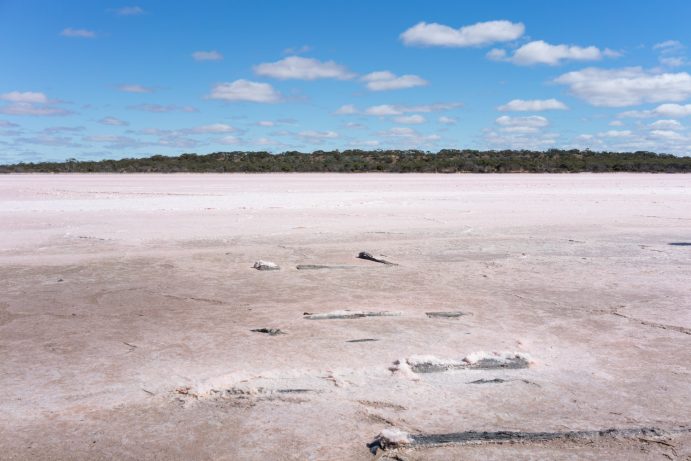I am pleased to be presenting some of my research concerning salt as a mediating technology in November.
Practising Landscape: Land, Histories and Transformation
Glasgow School of Art, UK. 13 November 2020: Booking here
The symposium asks: How do contemporary art and other interdisciplinary practices engage with (and expand) the themes of Land, Histories and Transformation? How can such practices work with contested histories, identities and remoteness in specific locations? What do land and other material practices reveal in terms of transformation, heritage and sustainability? Which practical, creative and critical theoretical frameworks are currently being utilised to interrogate the politics of Land, Histories and Transformation? How can a reflexive curatorial process activate these themes?
Salt: a crystal image of time
The mineral salt. This tiny halite that flows through our bodies; is preserved the chemistry of ancient oceans; this tiny halite is a primal medium that can make visible a land’s submerged past and foretells of future ecologies: salt a crystal image of time. Salt an elemental media….
Liquidity Cohort | Session 1: Saturation Epistemologies and Oceanic Media
Goldsmiths, University of London, UK, 18 November 2020
Melody Jue, hosted/ respondent Sam Nightingale
18 November 2020
In this session, Melody Jue will discuss saturation epistemologies in her book Wild Blue Media: Thinking Through Seawater and the forthcoming collection Saturation: An Elemental Politics (co-edited with Rafico Ruiz). Poised as an alternative framework to object-focused inquiries and metaphors of entanglement, saturation points us to those situations where substances are not so easily isolated or tangled but may be materially or figuratively co-present. Saturation starts as a form of watery thinking, drawing our attention to thresholds, phase changes, and precipitates of matter. Drawing on her work on theories of the interface in scuba diving and the photographic media of seaweeds, Jue traces the possibilities offered by saturation for rethinking our expectations of mediation in and through the ocean.
Sam Nightingale will respond to Jue to explore the condition of saturation by way of the mineral salt, staged through the encounter with the spectre of an ancient ocean in a semi-arid area of south-east Australia, where his practice-based research is situated. In a region saturated by salt and environmentally challenged by hyper-salinity, Nightingale presents salt as a mediating technology that discloses co-existing timescales and temporalities, complicating the threshold between preservation and mutability, and the ontological boundary between terrestrial and aquatic worlds.
The Liquidity Cohort is a growing group of researchers who work with various notions of liquidity from the body (in the broadest sense, human and otherwise) to material infrastructures. We are interested in “liquidity” as an immersive experience of being-in-the-world and its implications for practice; questions of how to write from states of immersion, how to work from the body immersed in experience. We are also interested in hydrological and technological infrastructures and their impacts on the body and its worlds. The Liquidity Cohort was initiated by Dr Bridget Crone (Visual Cultures, Goldsmiths) in 2018, and is open to researchers from CHASE institutions.
Melody Jue is Associate Professor of English at the University of California, Santa Barbara, and works across the fields of ocean humanities, science fiction, STS, and media theory. Drawing on the experience of becoming a scuba diver, her book Wild Blue Media: Thinking Through Seawater (Duke University Press, 2020) develops a theory of mediation specific to the ocean environment. She is the co-editor with Rafico Ruiz of Saturation: An Elemental Politics (Duke Press, 2021) and co-editor with Zach Blas and Jennifer Rhee of Informatics of Domination (Duke Press, under contract). Jue has published articles in journals including Grey Room, Configurations, Women’s Studies Quarterly, Resilience, and Animations: An Interdisciplinary Journal. Her new work explores the media of seaweeds in relation to photography, experimentation, and regenerative aquaculture.
Sam Nightingale is a visual artist and a PhD candidate in the department Media, Communications and Cultural Studies, and the Centre for Research Architecture (Goldsmiths). His practice and speculative fieldwork investigate ‘spectral ecologies.’ Working with experimental photographic methods, he explores how ‘spectral ecologies’ trace human and nonhuman histories and events enmeshed within organic and inorganic life, of salt, soil, and plants. Recent publications: ‘Para-photo-mancy: notes on biochemical images,’ Antennae (2019); ‘Cinétracts – cinematic cartography in the Australian Mallee’, Living Maps Review, (2019) ‘Photochemical Alchemy,’ CAA Art Journal Open (2019); He is currently co-editing a book entitled Planetary Fields: A Guide to Experimental Fieldwork for Future Ecologies.
